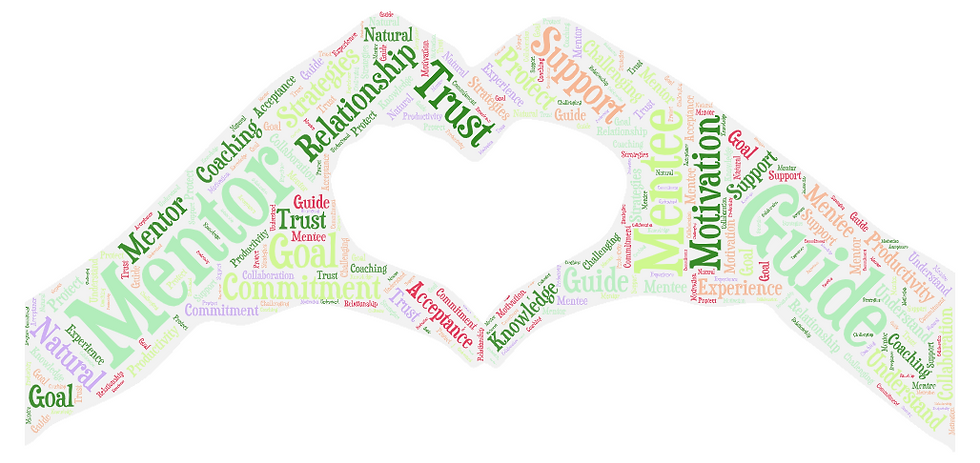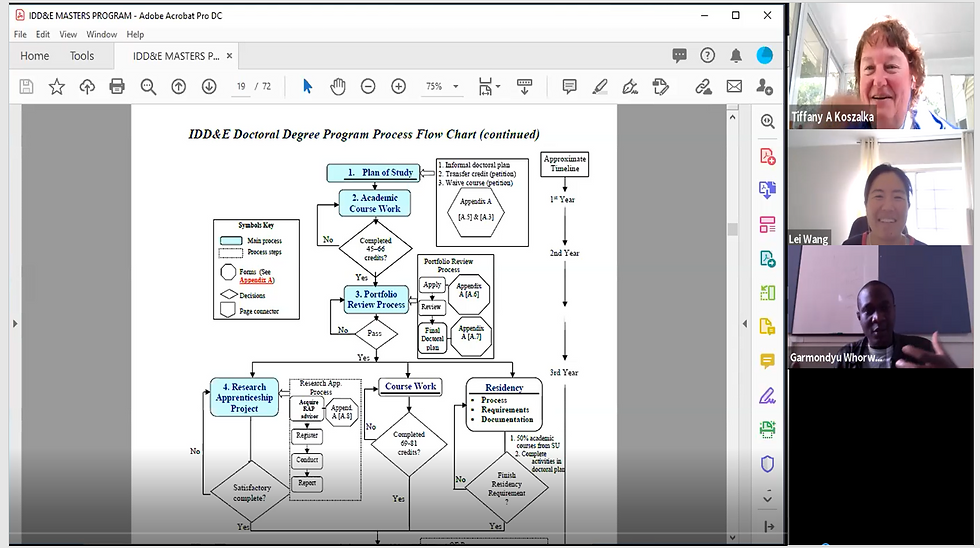What Makes an Effective Mentor-Mentee Relationship?
- lwang698
- Oct 16, 2020
- 4 min read
Updated: Oct 26, 2020
Mentoring has perplexed me for a long time, especially since I started my doctoral program. I have been observing others and interviewing friends and faculty to gain some experience for a couple of months. Read the strategies below and apply them if they resonate with you and see how they work. Feel free to leave your comments.

The origin of mentoring
What is the exact meaning of "mentor?" I was very curious about this and took out the dictionary on my desk. Merriam-Webster defines a mentor as "a trusted counselor or guide." One of the first records of a "mentor" is found in Homer's The Odyssey. When Odysseus went to fight in the Trojan War, he entrusted the care of his kingdom and his son to Mentor, a wise and trusted counselor, who had also been given the task of educating Odysseus' son, Telemachus.
We can envision the scene: a loving father gave somebody tasks that he/ she can be counted on because he/she has experience and has been approved by others to develop inexperienced individuals' skills and abilities. This individual is considered to be a mentor.
The importance of mentor-mentee relationships
Reflecting back, nobody can deny that mentors have been playing significant roles in teaching and learning within our educational contexts. Daloz (1986), who studied mentoring within educational contexts, found that his students viewed their learning as transformational journeys and sought guidance from their mentors when they encountered unexpected challenges along the way. Investigating his own mentoring practices, he understood the mentor as someone who “engenders trust, provides encouragement, and offers a vision for the journey” (p. 30). For many mentees like me, mentors embody what I wish to become.
So, what makes an effective mentor-mentee relationship?
Similar to other relationships, an effective mentor-mentee relationship takes work from both sides. Here are some of the key factors in this relationship I have come to understand from my colleagues, friends, and professors.
Strategy #1: Communicate with each other regularly to build relationships.
The relationship between a mentor and mentee is not well established in the beginning. The two people might not know each other. If mentors want to advance their mentees' careers and mentees want to perform better with mentors' help, they should get to know each other well. It's important to understand each other's cultural background, characteristics, and expectations. For every meeting or communication, it's better to understand each other’s principles and values, strengths and weaknesses, what drives them and what they wish to get out of this relationship. Discuss shared values like integrity, mutual respect, openness, trust, and active listening as the foundation for all conversations. Choose to meet mentors in person or use video chats during the pandemic to not only hear what partners say but observe what partners do, what their body language implies, what their facial expressions tell you. Try to build the basis for potential collaboration.
Strategy #2: As mentees, meet mentors' expectations.
Once you have your desired mentor, you have to think about how to communicate with him/her. Mentees always want to make great achievements. A good mentor will devote a tremendous amount of energy to engaging and guiding a mentee and dealing with the ups and downs and all possible human emotions that come into play when two people are trying to achieve something significant. However, as the saying goes, "It takes two to tango." If mentors are eager to make a difference in your life, what does the mentee need to do? Follow guidance and believe you can achieve the goals and meet your mentors' expectations. Approach your mentors with any questions for more direct advice or help.
Strategy #3: As mentees, find a match between you and your mentors' interests.
Enjoy intellectual exploration with mentors. The beauty of the mentor-mentee relationship is that mentors and mentees can learn from each other. A reciprocal relationship will help strengthen the bond and create value. Finding shared interests will inspire both sides and develop new expertise from different perspectives.
Strategy #4: As mentees, be honest and open in conversations.
Good mentor-mentee relationships are based on good communication. When it comes to professional mentorship, especially between mentors and mentees that have different cultural backgrounds, good personalities are extremely important. Mentors are relatively busier than you, so when mentees have meetings with mentors, mentees should be well prepared so as not to waste each other's time. Take notes carefully. If you don't think you can jot down all the important meeting minutes, be brave to ask your mentors to record the meetings if you have them virtually. Raise any issues or questions you have in the precious time and ask for clarification or suggestions. Sometimes if you don't think you get enough help on a specific area, just be open and talk with mentors. You might have new conversations in the near future or with someone else.
All in all, from my point of view, exceptional communications and strong commitment are essential to building a prosperous mentor-mentee relationship.
References:
Daloz, L. A. (1986). Effective teaching and mentoring: Realizing the transformational
power of adult learning experiences. San Francisco, CA: Jossey-Bass Publishers.






Comments